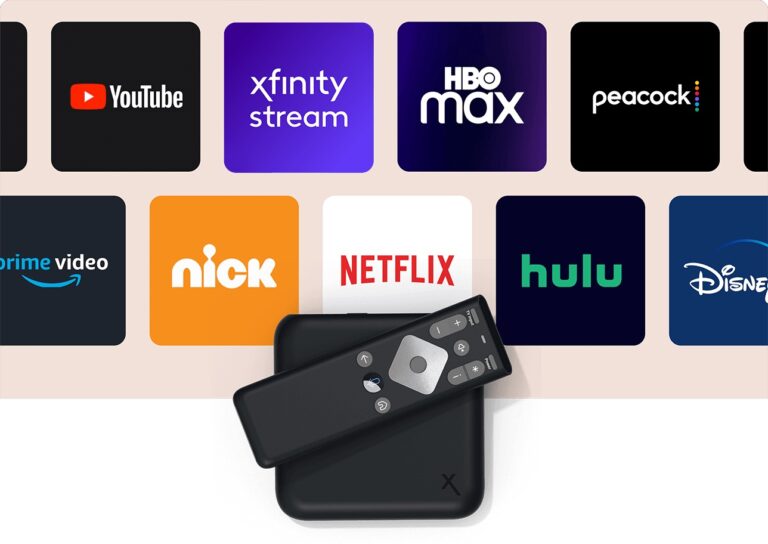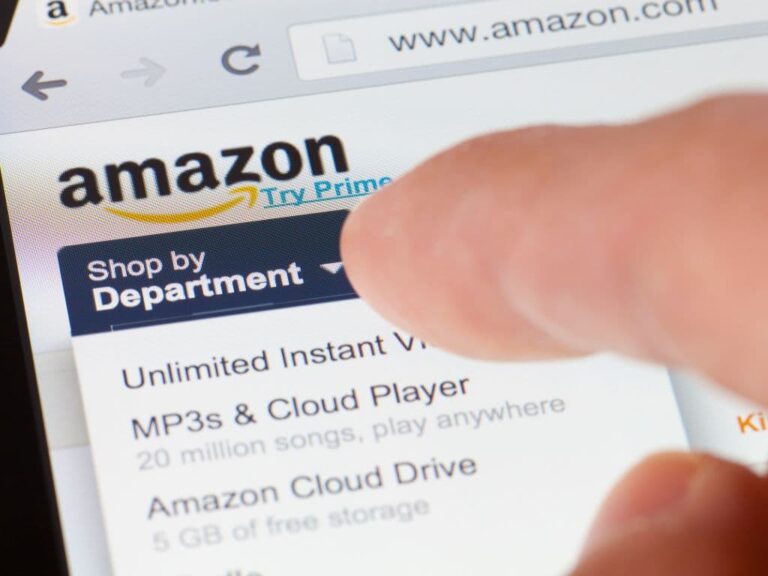Why Does My Internet Bill Keep Going Up?
Internet service costs have been steadily rising in the United States in recent years. This trend is especially impactful for seniors, many of whom are on fixed incomes and struggling to keep up with the increasing cost of basic services like internet access.
Why does your Internet bill keep going up?
The rise in your internet bills can be attributed to factors such as general inflation, increasing demand for higher bandwidth, and consolidation in the cable industry reducing competition. These dynamics lead to gradual price hikes passed onto consumers. The impact is especially significant for seniors on fixed incomes, who might face budget strains and risk social isolation.

What Factors Contribute to the Rising Cost of Internet Service?
Several key factors are driving up the prices that consumers pay for home internet service. Understanding these market dynamics is important context for why internet bills seem to creep higher every year.
The Role of Inflation
General inflation in the economy contributes to higher prices for internet service. Much like other goods and services, the cost of providing broadband creeps higher over time. When the cost of living rises due to economy-wide inflationary pressures, internet providers often pass those increased costs onto consumers through gradual internet bill hikes.
Increasing Demand for Bandwidth
The explosion in demand for higher bandwidth internet connections also puts upward pressure on prices. With more households using data-intensive applications like streaming video, video conferencing, and online gaming, there is greater demand for higher speed tiers of service. Upgrading networks to deliver faster speeds often leads internet providers to charge consumers more in order to cover those infrastructure investments.
Cable Industry Consolidation
The increasing consolidation of the cable TV and internet access industries has reduced competition in many markets. Mergers between major cable companies have left some metro areas with just one or two dominant broadband providers. Less competition typically enables companies to hike prices more aggressively. The lack of consumer choice compounds the problem of rising internet costs.
How Does the Rising Cost of Internet Service Impact Seniors?
Seniors often feel the brunt of escalating internet expenses. Here’s how the rising cost of broadband can have an outsized impact on older Americans:
Strain on Fixed Incomes
Most seniors are retired and living on a fixed income. For those relying primarily on Social Security checks and retirement savings, an extra $10 or $20 per month for an internet bill can be a meaningful hit to the family budget. Seniors have limited ability to absorb higher costs for essential services like the internet.
Difficult Budget Tradeoffs
Higher internet expenses force difficult tradeoffs within tight household budgets. To pay the bill, seniors may have to cut back on groceries, medical copays, home maintenance, or other important priorities. With so many seniorson tight budgets, they often have no slack to accommodate the rising cost of broadband access.
Risk of Social Isolation
Unaffordable broadband access can lead to social isolation. Staying connected with children, grandchildren, and friends often requires a sufficiently fast home internet connection. When seniors lose access due to cost, they can become disconnected from family and community. This social isolation can have significant negative consequences.
What Can Seniors Do to Reduce Their Internet Bill?
For seniors struggling with expensive internet bills, there are some steps that can be taken to cut costs:
Explore Discounted Broadband Programs
Certain internet providers offer discounted broadband service for lower-income seniors. Exploring eligibility for these programs can lead to substantial savings on monthly internet costs. Non-profits and government agencies also sometimes offer low-cost internet plans for needy seniors.
Understand and Manage Data Caps
Many broadband plans now have strict data caps that trigger overage fees if exceeded. Educating seniors on data usage, setting limits on streaming, and disabling automatic software updates can help avoid costly overage charges. Monitoring usage ensures seniors get full value from capped plans.
Assess Streaming Service Needs
The growth in streaming services like Netflix, Hulu, and YouTube TV has made home internet access more expensive. Seniors should assess which paid services they truly need and limit subscriptions to the essentials. Free streaming options like Pluto TV can also help limit paid services.
What Resources Are Available to Help Seniors?
For low-income seniors, there are resources that can help bridge the growing digital divide by providing financial assistance:
Government Assistance Programs
The FCC’s Lifeline program provides monthly discounts on either home broadband bills or mobile data plans. This assistance can make internet access more affordable for eligible low-income seniors. Some states and cities also offer their own broadband cost assistance programs.
Remote Work Support
Non-profits like Older Adults Technology Services provide digital literacy training to low-income seniors. Learning skills for remote work roles allows seniors to earn income to pay for broadband access. Developing digital skills also enables seniors to fully utilize technology.
Social Media and Shopping Guidance
Many seniors don’t realize that extensive use of social media, online shopping, and other internet services can lead to higher data usage and bigger monthly bills. Education programs can provide useful guidance on responsible internet use.
How Can We Address the Digital Divide?
Bridging the digital divide remains an urgent concern for enabling seniors to lead engaged, socially-connected lives. Some ways society can promote digital inclusion:
Prioritizing Eldercare Access
Nursing homes and assisted living facilities need sufficient broadband capacity for residents. Group living settings should ensure eldercare residents can video chat with family or access telehealth services without rationing connectivity due to limited bandwidth.
Technology Training
Digital literacy programs at senior centers can empower older adults to utilize the internet for education, entertainment, and social engagement. Subsidizing devices and inexpensive internet plans helps ensure training leads to sustainable broadband adoption.
Fighting Isolation
Affordable broadband is essential for keeping seniors connected and engaged. Programs that teach social media usage and video conferencing can help isolated seniors remain in touch with loved ones and avoid the devastating impacts of social isolation. Access and training must intersect for impact.
The rising cost of home internet service disproportionately impacts seniors and risks widening the digital divide. Identifying affordable internet plans, reducing unnecessary streaming costs, and leveraging government assistance programs can help lower bills. But addressing the complex root causes of steadily rising broadband costs remains critical so that all seniors can access the vital connectivity they need to participate in modern society.
Frequently Asked Questions
-
Why is it so hard to cancel cable?
In a highly competitive market, customer acquisition can be costly. TVRev’s lead analyst, Alan Wolk says that they make every effort to keep customers signed up and makes it hard to cancel. Long hold times for phone calls are also part of the strategy.
-
Why is my AT&T internet bill so high?
You exceed your data cap. Many plans include a data cap. Overage fees are $10/50G. The $20 charge could represent a partial or full data overage fee. UVERSE-based internet fees can reach up to $100 per monthly, while LEGACY DSL and FIXED WIRED charges can go up to $200 each month.
-
Is it cheaper to bundle TV and internet?
We’ve discovered that bundling internet, television, and home phone is a great way to save even more money if you are looking for a triple play bundle. Combining all three can save you up to $50/mo. Depending on which provider you select, it could be even more.
-
Does DIRECTV offer a senior discount?
DIRECTV does not offer a Senior Discount or a plan specifically for senior citizens. Our favorite choice would be DIRECTV CHOICE which costs just a little more than the basic DIRECTV ENTERTAINMENT packages.
-
Why does my internet bill keep going up?
Your bill may show the cost of online access. It’s becoming a common practice for businesses to increase the prices of internet and TV services. Consumer Reports Tech Editor Jim Wilcox stated that the increase in prices is due to rising programming costs, faster broadband speeds and other factors.
-
How Much Should TV and internet cost?
Standalone TV Plans: Standalone TV Plan: $78.58 per month is an affordable price for about 205 channels. For 500 Mbps, standalone internet plans cost $59.38 per month. For approximately 182 channels, and 500 Mbps, a TV-and Internet bundle costs $129.05 per month.
-
Does AT&T have any hidden fees?
AT&T hides the administrative fee in a spot that is easy to miss in customers’ bills. The complaint claims it misleadly implies the Administrative Fee is similar to a tax, or other standard government pass through fee. In reality, it is just a way for AT&T advertise lower rates and make promises about it charging.
-
How can I get 10 dollars a month on Wi-Fi?
AT&T offers $10 per month for high-speed internet access to low-income families For more information and to determine eligibility, please visit www. att. www.att.com/access or 1-855-220-5211
-
What is the cheapest Xfinity plan?
Connect is the cheapest Xfinity plan. It costs $19.99 per month and offers 50 Mbps download speed and upload speeds of 5 Mbps.
-
Does AT&T offer senior discounts?
AT&T offers senior discounts plans that help seniors save money on their phone bills. Senior citizens can also receive 10% off any plan by joining AARP.
-
What is the best way to get rid of cable TV?
You can stream from a smart TV or game console to Roku, Fire TV and Chromecast, as well as Apple TV. While you won’t require a cable box any more, you will still need a streaming device in order to access services like Netflix, Hulu and Amazon Prime Video.
-
Does Xfinity have discounts for senior citizens?
Xfinity does not currently offer senior citizens discounts. They offer an Internet Essentials plan that is priced and designed for customers with low incomes.
-
Is there an app that gives you free Wi-Fi?
The free Avast Wi Fi finder app for Android allows you to find WiFi networks nearby. You will be notified of the most recent information regarding nearby WiFi hotspots via regular updates. Your device must be connected to the Internet before you can launch the app for the first times.
-
How much is 200 Mbps internet?
A download speed of 200Mbps allows you to download entire albums in just 3 seconds. A HD quality film (at 1080p) will be downloaded in 3 minutes, and a 4K movie (5 minutes).
-
Why is my internet so expensive?
This could be due to the high cost of internet access in America. Americans pay more for slow internet than those abroad. Claire Park, policy analyst at Open Technology Institute, said that this is one reason. Many consumers find the price of internet access to be too expensive and too difficult.






